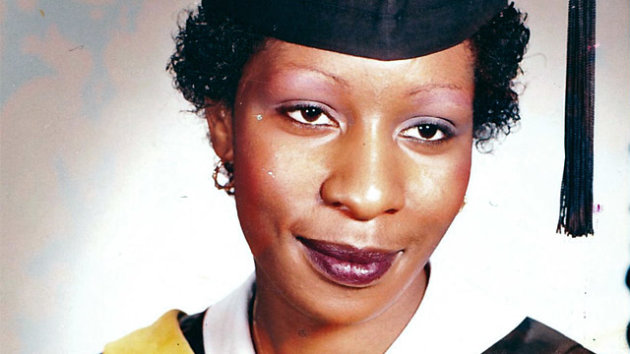
Via - Abc News
North Carolina will become the first state to compensate victims of a mass sterilization program that targeted poor minorities in a 20th century eugenics program, offering a $50,000 a person.
In a vote today, the Eugenics Compensation Task Force recommended the lump-sum amount, putting a three-year statute of limitations on claiming those funds.
The task force also established a pool to fund mental health services for sterilization victims.
The state has located 72 such victims, according to Jill Lucas, communications director for the North Carolina Department of Administration.
A final report on today's recommendations will be given to Democratic Gov. Beverly Perdue to consider. She will pass along her recommendations to the Generally Assembly, which will make a final decision about compensation.
 Some lawmakers had urged as much as $1 million for each victim.
Some lawmakers had urged as much as $1 million for each victim.
"The state recognizes that a wrong has been done and while these actions can never be reversed, the governor has made it a priority to reach out and help identify and compensate victims for their experience," said Lucas.
The state sterilized more than 7,600 people in North Carolina from 1929 to 1974 -- one of many other states in misguided attempts to weed out criminals and the mentally disabled.
"If we all agree that there is no amount that restores somebody's loss of ability to procreate, then it's understood that the ultimate figure is an attempt to put out an active apology instead of a verbal apology," task force member Demetrius Worley Berry, a Greensboro attorney, told the Associated Press "This is not an attempt to compensate, repair or restore what happened years ago."
Last year, ABCNews.com interviewed Elaine Riddick, a poor, victim of child molestation who was robbed of her ability to have children.
Pregnant by rape, young Riddick went into a North Carolina hospital in 1968 to give birth to her son. Years later, she learned she was sterilized.
The decision was made by the North Carolina Eugenics Board, a five-person state committee responsible for ordering the sterilization of thousands of individuals in the name of social welfare.
Deemed "promiscuous" and "feebleminded" by a social worker at the hospital, Riddick, who came from a black family on welfare, was recommended to the state for sterilization shortly after arriving. Riddick's illiterate grandmother, was told that they were doing a "procedure" that was necessary to help the young girl and signed the sterilization papers with an "X". The state authorized and paid for the procedure, and without her consent or even her knowledge, Riddick was sterilized shortly after giving birth. She was 14 years old.
"They didn't have permission from me because I was too young and my grandmother didn't understand what was going on," Riddick, now 57, said. "They said I was feebleminded, they said I would never be able to do anything for myself. I was a little bitty kid and they cut me open like a hog."
"I was raped twice," she says, "once by the perpetrator and once by the state of North Carolina."
At some point in the century, more than half of the states in the U.S. had similar programs that allowed for the sterilization of those the government deemed unfit to procreate.
When most programs began in the early 1930s, this usually meant those in institutions for mental illness or mental retardation, but over the decades criminals, the blind, the deaf, the disabled, alcoholics, those with epilepsy and ultimately the rural poor on welfare would fall under the umbrella of "unfit to procreate."
In all, 65,000 Americans were sterilized before the last program was shut down in the early 1980s.
Though detailed, often meticulous records of these sterilizations survive in state archives, America's flirtation with selective sterilization has for the most part been a buried chapter in the nation's history.
"Eugenics in the U.S. is something that's still not nationally known. People associate it with Nazis; they don't realize that the U.S. did it too," says Rebecca Kluchin, an assistant professor of History at California State University, Sacramento who specializes in the U.S. eugenics programs.
Only seven of the 33 states who ran such programs have even publicly acknowledged or apologized to victims of sterilization.
Only North Carolina, home to the third most prolific sterilization program in the nation, has recently made moves to compensate its victims.
In 2010, Perdue established the N.C. Justice for Sterilization Victims Foundation, whose mission is to determine proper compensation for those still suffering from the state's mistakes. Fewer than 2,000 sterilization victims are estimated to still be alive today.
North Carolina sterilization program was at its peak during the civil unrest and exploding welfare costs of the 1960s, says Johanna Schoen, an associate professor of history at University of Iowa and expert in the North Carolina sterilization program.
It was the only state where social workers had the right to suggest "clients" for sterilization and the eugenics board seldom turned down those recommended -- they had a 95 percent acceptance rate. What's more, the program created a climate where doctors felt entitled to take sterilization into their own hands, doling them out when they saw fit, she says.
Instead of sterilizations taking place in mental institutions, in a few southern states they became more common in rural hospitals where poor unmarried women would be sterilized without their knowledge after coming in to give birth. In North Carolina, 85 percent of sterilization were performed on women as young as 9-years-old.
The N.C.Sterilization Victims Foundation can be reached by their toll-free hotline, 1-877-550-6013, or on their website: www.sterilizationvictims.nc.gov.
No comments:
Post a Comment